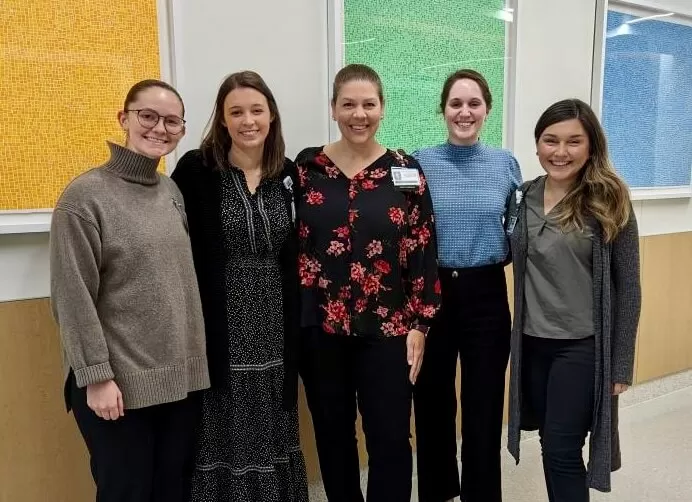Does Cancer Run in Your Family?
If members of your family have had cancer, you might be at an increased risk of getting it yourself. It’s estimated that 5 percent of all cancers are due to a specific inherited syndrome, and approximately 10 perent of cancers run in families (Source: American Cancer Society). Additionally, about 20 to 30 percent of cancers are due to a combination of genetics and environment.
As a part of UT Southwestern’s Simmons Comprehensive Cancer Center, Moncrief Cancer Institute offers the only research-based clinical program in North Texas with testing and genetic counseling for all types of cancer.
When a patient inherits a faulty gene (or several) from a family member, he or she might have a higher risk for developing certain cancers. Genetic testing can help patients determine that risk. Genetic counseling helps families understand the information they find and their options going forward.
The information patients gain from understanding their hereditary cancer risk might impact treatment decisions for family members who already have cancer and can help determine if other relatives are at an increased risk of developing cancer.
Through this program, board-certified genetic counselors can help you find out your risks of developing cancer. If an increased risk of cancer is discovered, we can recommend certain preventive measures to reduce your chances of actually developing the disease. Genetic testing can also give you peace of mind if you find out that you don’t have an increased risk of developing cancer.
Characteristics of Cancers that are Inherited:
- A cancer occurring at an unusually young age compared with the usual occurrence of that type of cancer
- Development of more than one type of cancer in an individual
- Family history of cancer of the same type in close relatives
- High rate of cancer within a family
- Related cancers in the same family (for example: breast and ovarian; colon and endometrial)
How does Genetic Testing Work?
The first step is a genetic risk assessment, where we obtain a complete family history from you, examine key medical records, and perform a cancer risk analysis and calculation. After the assessments, we’ll share the advantages and limitations of the genetic testing with you.
If we determine that genetic testing is a good idea, we’ll give you a test that looks for changes in genetic material or genes that are related to cancer. The test can reveal if you’re at a greater risk of developing cancer sometime in the future.
These services are provided at Moncrief Cancer Institute, through telemedicine links in Fort Worth, and through various providers across North Texas.
Find Out More: To schedule an appointment or speak to a genetic counselor, call UT Southwestern's Cancer Genetics program at 214.645.2563.

